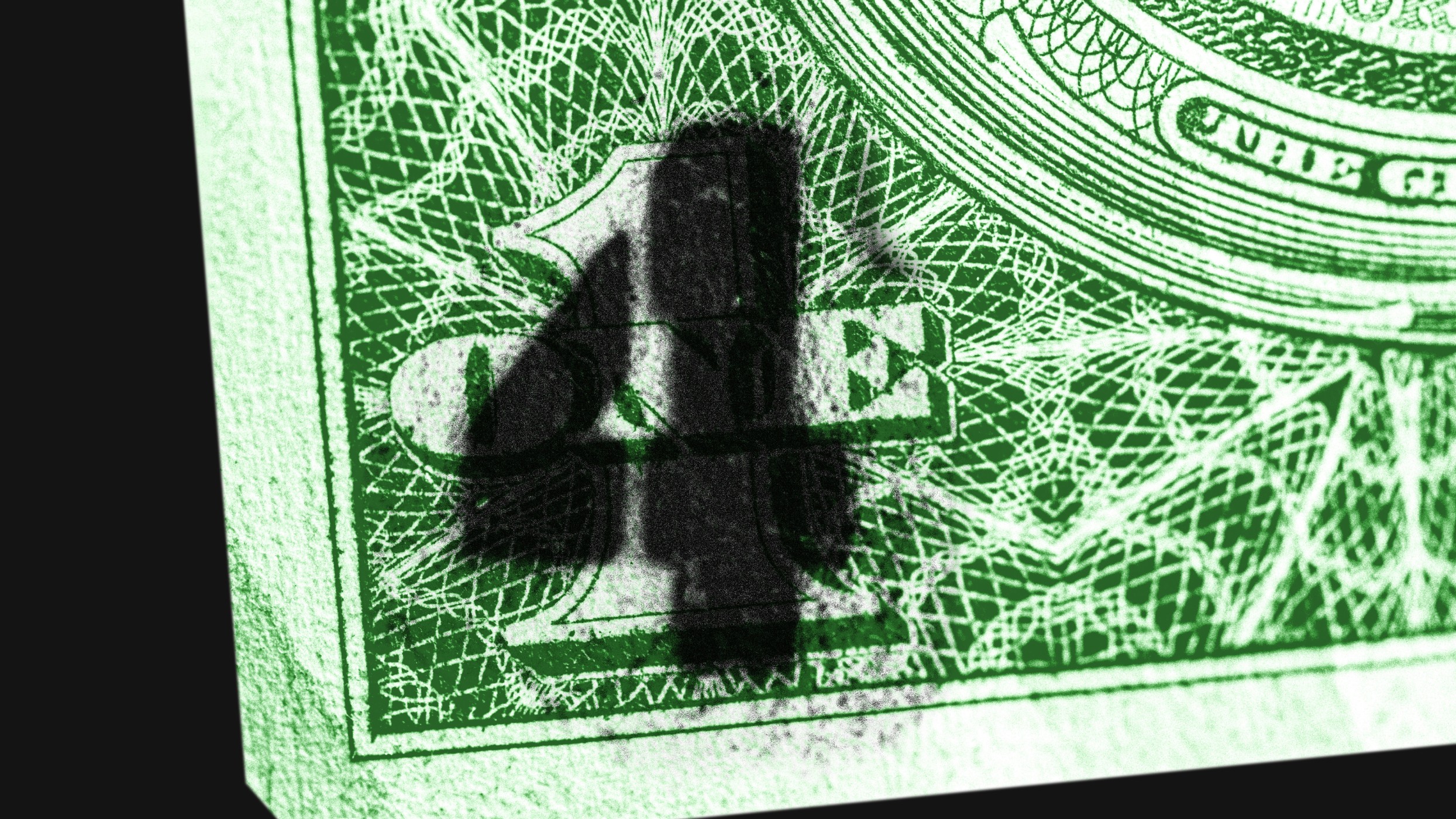How to handle the stress when you see your 401k savings dip

I check my finances, including my 401K, every single day. Every. Single. Day. My financial fixation stems from my mother’s obsessive preoccupation with prioritizing saving over spending. She had several economic edicts on repeat throughout my childhood: Earn a dollar. Spend 50 cents. Save 50 cents; It’s not how much you make, it’s how much you keep.
Unlike many Americans, my older brother and I were taught — forced — to resist our consumerist urges. I constantly witnessed my mom wringing her hands when any life event interfered with her ability to preserve as much cash as possible — braces, back-to-school shopping, holidays, and birthdays. Consequently, I’m perpetually in knots about money and erroneously believe that my hyper vigilance will somehow protect me from financial ruin.
So when those down-pointing red arrows on the Dow Jones Industrial Average show up regularly, as they have been for the last week, and my retirement accounts start shrinking, I stare at my online statements with misty eyes and panic. In other words, I do exactly what one should not do. To help you — and me! — reduce anxiety amid so much market volatility, I checked in with two financial experts, Erin Lowery, author of Broke Millennial: Stop Scraping By and Get Your Financial Life Together, and Grant Sabatier, the creator of Millennial Money and the author of the forthcoming Financial Freedom: A Proven Path to All the Money You Will Ever Need, to bring you the equanimity and rationality you need to relax.
Don’t look!
Lowry says to stop looking at your falling numbers, especially every day. During the reporting of her second book, Broke Millennial Takes on Investing: A Beginner’s Guide to Leveling Up Your Money, out in April 2019, an investment analyst at Vanguard told Lowry that during the 2008 financial crisis she resisted the temptation to eyeball her statements for a whole year. “Her reasoning was: ‘This is my retirement and I don’t need this money for decades. If I look at it, it’s just going to make me anxious.'” Unless you’re edging toward retirement, there’ll be plenty of time for the market to recover, so it’s senseless to give yourself additional unnecessary stress.
Remember: You haven’t really lost anything
“Even if your 401K tanks tomorrow, don’t stress because you actually haven’t lost any money,” Sabatier emphasizes. “You only ‘lose’ or ‘make’ money on your 401k when you sell and withdraw the money,” he says. It’s important to remember this, because we often react to these market movements the same way we would to someone removing physical dollars from our wallets, when of course, they’re not quite the same thing.
Act with your head, not your feelings
Lowry encourages us to speak with a financial advisor to help us make educated rather than emotion decisions. “I worry that if people don’t have someone to check them, they will stop contributing, or go in and tinker with their portfolio, which will probably do more harm than good because they aren’t thinking rationally,” she says. A trusted support system is always useful.
Understand the fundamentals of the market
The downturns are simply part of an economic cycle. “There is going to be growth and then a recession. It’s just a natural part of the process,” Lowry says. In her forthcoming book, she dedicates an entire chapter to the history of the market, which she hopes will alleviate anxiety when the it takes a dip. “It covers all these ups and downs, when they happened, why they happened, and how we overcame them,” she explains. Being able to recognize the patterns and understand that it’s part of a normal cycle will help you remain rational through the downturns.
Sabatier, who amassed 1.5 million dollars over a five year period, adds, “The stock market averages approximately 7.2 percent annual growth over any 15 year period in history… so keep cool and keep investing as early, as much, and as often as you can.”
–Reprinted with permission of Thrive Global. Read the original article.





